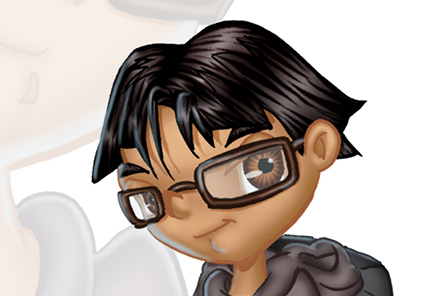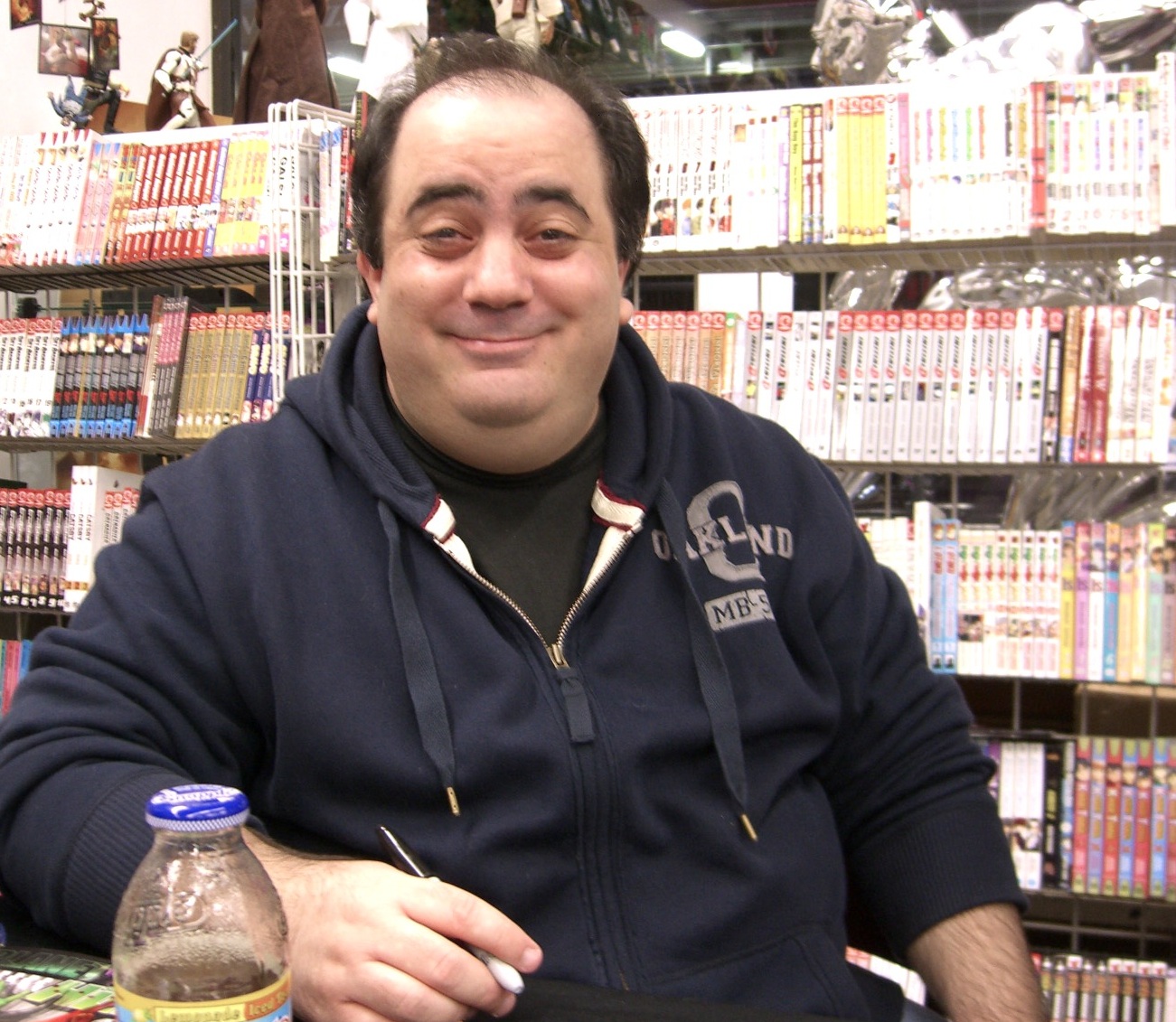
A month ago, Ex-Heroes crossed my path. It is a tempting genre-crossing zombie and superhero mash-up novel I couldn’t resist. Ex-Patriots, the sequel, was recently released as an audio book which I finished listening to during my morning workouts on the treadmill. A strong cardio workout regimen is crucial to surviving a zombie apocalypse.
I was intrigued by what I found when I researched the author, Peter Clines. He’s been the prop master on over 30 movies and TV shows. He’s also written about the TV and film industry. With these novels under his belt and an interesting career, I wanted to hear what he had to say and he graciously agreed to this interview.
If you are a comic book writer or artist, pay close attention. There may be an opportunity for a graphic novel. You can catch up with him at his blog or his message forum.
 JI: You didn’t care for the Marvel Zombies story line which served as something of an inspiration for Ex-Heroes. Could you elaborate on that?
JI: You didn’t care for the Marvel Zombies story line which served as something of an inspiration for Ex-Heroes. Could you elaborate on that?
PC: Hah. Dive right to the controversial stuff. I’m okay with that…
I don’t know if I’d put it that way. Inspiration sounds a little too (complementary) and implies a different type of link. I’d say Ex-Heroes was more of a reaction to that miniseries. When I first heard about Marvel Zombies—I think in an issue of Previews—I thought it was going to be fantastic. It was described as, if memory serves, dropping the Marvel universe into a George Romero movie. How awesome does that sound, right? Not only that, but this was a scenario where the heroes would actually get to be heroic, which is something that seems to happen less and less in Big Two books these days. Heroism is swapped out for melodrama, uber-realism, or “epic” storytelling. Usually some mix of the three.
Well, the book came out and it wasn’t that story at all. There weren’t even any heroes in it. It was just ghouls in costumes jabbering away constantly about what it’s like being dead and hungry. It was a gorefest and not much else. And how the hell does a zombie bite Iron Man, anyway? Or any of the hundred or so bulletproof characters? I know a lot of people had fun with it, but it was a huge let-down for me. I also felt like they’d missed a tremendous opportunity to tell a story about how different types of heroes react to this sort of extreme situation.
A couple months later I stumbled across one of my grade-school sketchbooks where I’d created tons of my own original superheroes. That was what really inspired me to start writing the story I wanted to see, using updated versions of those heroes. And over about five or six months that story became Ex-Heroes.
JI: In the Ex series the zombies are referred to as “exes.” Why did you arrive at this term rather than “zombie?”
PC: It was just one of those observational things. So many people go out of their way not to call things what they are these days. You’re not being fired you’re being “downsized.” Your story isn’t being rewritten, it’s being “developed.” It’s not a used car, it’s “pre-owned” (and doesn’t pre-owned mean nobody’s owned it before…?).
Anyway, it struck me that if zombies did appear certain people would probably trip over themselves trying to avoid saying “zombie.” They’d come up with a less threatening term that also made them sound smarter when they said it. I settled on ex-humans, because it felt like something you’d hear people use on news shows and at press conferences. It’s so easy to picture someone on Fox News saying “Big gains for ex-humanity in the southern states this week…”
And then, like any overused term, right or wrong, it caught on. It’s not like anyone avoids saying “zombie” in the books. “Ex” just sort of became the PC term to use.
 JI: Ex-Patriots has been released recently as an audio-book with the characters’ parts read by different voice actors. How did that come about?
JI: Ex-Patriots has been released recently as an audio-book with the characters’ parts read by different voice actors. How did that come about?
PC: That was a deal between Permuted Press and Audible.com. I had very little to do with it. A few other authors and I were told about the deal when it was in its early stages, and then it was finally set up and I think we got the same press release everyone else did. Part of the deal was that Audible.com would get four Permuted books exclusively before they came out in paperback or ebook formats or anything else. Ex-Patriots was one of the four they wanted, and they released it right after the Fourth of July weekend. I think Permuted’s putting out the paperback version in late September.
My sum involvement with the creation of the audiobooks themselves was getting contacted by the narrator/ male voice actor, Jay Snyder. He had a bunch of questions about pronunciation of names and places. He also wanted to hear my “dream cast” for the book so he could get a sense of what kind of voices the different characters had. We shot a couple emails back and forth about stuff like that. I think he did a fantastic job, and so did Khristine Hvam, who did the female voices.
Audible.com did contact me about doing some bonus material for the mid-summer releases, and I ended up writing The Junkie Quatrain for them over the month of March, just as I was starting my new book. That was a pretty hectic month. The Quatrain is four post-apocalyptic short stories that interweave and contain some of the same events, but each one stands alone and it doesn’t matter what order you read them in. They’re giving away one with each of the four Permuted books released in July.
JI: In a previous interview on Unleashed you mention how much pressure there was in getting your first novel released and apprehension about its reception. Now that it’s met with success, has it been any easier to write Ex-Patriots?
PC: Oh, God, no it’s so much worse. I think everyone gets the first book jitters. But now the book’s come out and it’s gotten great reviews and its selling great and worse yet—everyone expects you to do it again. It’s like when you get a second date with someone you never, ever should’ve scored a first date with, and now you’ve got to figure out how to make it all be perfect a second time. I was stressed the entire time I was writing it, and even when I was getting positive notes from my handful of early readers I was convinced it wasn’t going to measure up. I’m still anxious about it, even with the positive reviews it’s getting at Aubible.com.
JI: Did you apply any lessons learned from the first novel to the second? Did you face any new challenges?
PC: There was one lesson I learned the hard way. Once you establish a certain type of world in a story, it affects what you can do with phrasing and terminology. Saying “a cell phone appeared in his hand” could mean he pulled it out of his pocket, but in this world it could also mean he teleported it or something. One of the characters who shows up in both books is a woman nicknamed Lady Bee, because she has striped hair. But because I gave her this nickname in a world with superheroes, a lot of people took that to mean Lady Bee was another hero. I even got some letters asking me to explain what her abilities were. So I managed to work a bit into Ex-Patriots where it’s clarified that she’s just a regular human with a nickname. I hope I clarified it, anyway…
The biggest challenge in this book, though, was the military aspect. The military is an entirely different world, and I’m smart enough to admit I don’t know that world. And it was important to me that it be done right. I didn’t want this to be one of those half-assed stories where captains give orders to colonels and the Army uses AK-47s. Those are extreme examples, but you get my point. I wanted the military to look good and get the respect it usually doesn’t get in zombie stories.
Fortunately, I know a lot of people who’ve been part of that world, and a few who still are. These people got bombarded with phone calls and emails and Facebook messages. It’s a miracle some of them are still talking to me. And then I got more notes from some of them when I shared early drafts, and even more notes after that.
I actually got an email the other night from someone getting ready to deploy to Afghanistan for his second tour there. He’d just finished listening to Ex-Patriots and wanted to tell me how much he liked it and to thank me for not portraying the soldiers as mindless grunts. I’ve still been fretting a lot, so that was a huge relief to hear.
JI: Both Ex books are action-packed and move rapidly. They feel like they could easily be turned over to film or a graphic novel. Any plans to go in either direction?
PC: I’ve actually had a few tentative meetings with some folks here in L.A. about the possibility of something film related. They’re very cool, very enthusiastic people, but I’ve worked in Hollywood long enough to know the odds on this sort of thing. I’m not going to hold my breath quite yet. I did make a trio of book trailers, though, for anyone who wants to see a live-action Stealth. A bunch of friends from the film industry offered to help and the end products are pretty darn good for a volunteer project.
[youtube]http://www.youtube.com/watch?v=9D7DxltLAiw[/youtube]
As far as a graphic novel goes… I’d love to see one done, but I think it’d have to be someone else with the experience and resources to do it. A few folks have asked if I’d do it myself, but that poses kind of a dilemma. I’d need to learn how to do it so I could do it well, and that means not working on something else. So I could do a graphic novel of this, but then that would probably mean pushing back the release date of my next book or two. It’s just not a good use of time at the moment.
JI: Your IMDB profile lists that you worked on Psycho Beach Party, one of my favorite campy movies. It also states that you include a plush toy beaver in at least one scene of every movie you worked on. What’s with that? Where did it appear in Psycho Beach Party?
PC: I knew this would come back to haunt me someday…
Okay, the beaver first showed up many years back on the third show I ever prop mastered. It was very, very, very low-budget show, but the writer-producers continued to write very expensive episodes that were way out of the show’s budget range. No matter how many times anyone told them this they refused to listen. At one point there were shots in a veterinary clinic and we couldn’t afford live animals. I had to go to Target and buy a dozen two-dollar stuffed animals to fill cages with—and that was five percent of my budget gone right there! My immediate boss was fantastic, I liked a lot of the people I was working with, but really it was just awful. I quit after four episodes, and it was the only time in my film career that I quit a project.
Anyway, as I was packing up I grabbed one of the plush toys, the beaver, as a memento. It’s this stupid, very cartoony toy and now it’s been in about two dozen movies and a bunch of shows. He rode on top of my prop cart for a while and at some point I just randomly tossed him in a shot as an absurd piece of set dressing. Then I did it again and it just kind of became a challenge. The assistant director on Wild Things 2 named him Theodore (and we’ll see how many folks get that reference).
He’s hard to spot in Psycho Beach Party because the director, Rob, was on to me and it became a challenge. In one of the beach scenes—I believe the one where Amy Adams has her “accident”—you can just barely see him sitting on the dashboard of the food truck/ roach coach they’re hanging out at.
And if you read all the IMDB stuff, you also know that I’m the murderer in Psycho Beach Party. Every time you see the chest-down shot of the guy with gloves in a black jacket killing people, that’s me.
JI: The titles of the books in this series have double meanings. Ex-Patriots involves not only soldiers but also expatriates in the sense that post-apocalyptic America is not the America we know today. All former citizens are, essentially, without a country. Can you tell us anything about the next installment, Ex-Communication?
PC: Very good catch. One person brought up the double-meaning of Ex-Patriots almost a year ago as a joke, but I don’t think many people have keyed into it as a theme in the book.
I’m trying to keep Ex-Communication a bit under wraps at the moment, mostly because it’s still very rough. I know what the story is, but I know it in that sense of “let’s do a movie where Indy goes after the Holy Grail! And he brings his dad!” It’s an accurate description, but there’s a lot that still needs to be fleshed out. There are some set-ups and threads left dangling in Ex-Patriots, and those will all get resolved.
You could follow the same line of reasoning with the title, though, and get a pretty good sense of some of the ideas I’ll be playing with in it.
JI: You write about zombies. You interviewed George Romero. You worked and wrote about the film industry. Surely, you have an opinion. Zombies – fast or slow? What’s your preference and why?
PC: I’ve interviewed George twice, actually, and I have to take his side on this. I like my zombies shambling and stupid. I know it’s a controversial opinion these days, but it puts me in the same camp with Mr. Romero and Simon Pegg, so I’m okay with that. When you think of the word “zombie” the immediate image is a slow, stumbling, cannibalistic, dead person who’s been reanimated somehow. So that’s where my loyalties are. I know some people who’ve done some very cool “fast undead” stories, but it’s not something I see myself doing.
I think, for me, a lot of it a willing suspension of disbelief thing. Let’s be honest—it’s really hard to rationalize the walking dead. I think it gets a lot tougher when they can sprint and vault a dozen feet in the air like dying made them a track and field star. If science has taught us anything in recent years, we’ve learned bipedal motion is tough! That’s why none of us have robot butlers yet. It takes so much work to make something walk on two legs. And that’s just walking, mind you—not running, jumping, climbing trees, any of that. Mr. Pegg said something perfect in an interview once (and I’m paraphrasing a bit here)—“Death is a disability, not a superpower.”
I’d like to extend a thank you to Peter Clines for taking the time for this fun interview. Stay tuned to Comic Booked for more interesting authors and comic book coverage.
Thanks for reading!

















I share Peter's opinion of Marvel Zombies. So needless to say, my interest in his novels have been picqued. Yet another book to add to my Goodreads list. Thanks!
I can definitely appreciate the "reactionary" stance of these novels.
100 percent agreed to Michael's comment.